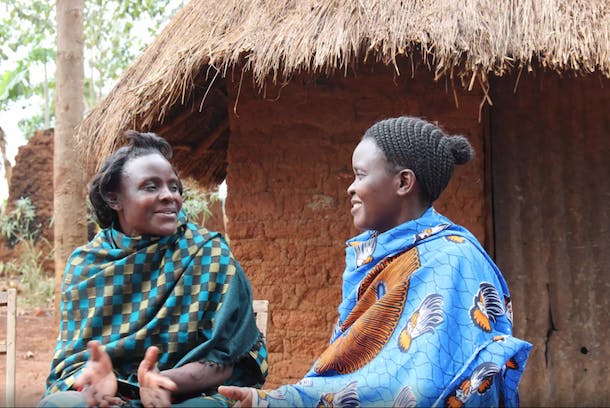
A year ago, the Trump Administration reinstated and expanded the Global Gag Rule – a move that had damaging consequences to the health and lives of people around the world.
This harmful policy – signed just days after the inauguration – prevents foreign non-governmental organizations from receiving U.S. funding if they provide information about, referrals to, or services for legal abortion, or advocate for legalized abortion, even with their own, non-U.S. funds.
The policy impacts reproductive health and family planning funding and, for the first time, extends to a wide range of other global health priorities such as maternal and child health, nutrition, HIV/AIDS, malaria, tuberculosis, infectious diseases, and neglected tropical diseases. It forces providers to choose between receiving critical U.S. funding and providing comprehensive health care, putting lifesaving health services out of reach for women and communities who need them most.
Because of its unprecedented expansion, the continuing rollout of the policy is causing confusion among organizations – some of which have never been impacted by the Global Gag Rule before – as they navigate what the new scope means for their programs and resources. Already, two of the most effective international aid organizations – Marie Stopes International (MSI) and International Planned Parenthood Federation (IPPF) – have lost critical U.S. resources and are working to secure emergency funding to make sure women and girls continue to have access to essential care. But this emergency funding can only go so far in filling the immense funding gap left by the U.S., and with the rollout still ongoing, more funding cut-offs are yet to come.
All of this means that, in its first year, the impacts of the expanded Global Gag Rule are difficult to quantify, and it’s far too soon to articulate its full impact. Last time the Global Gag Rule was enacted – in its original, unexpanded form – the world saw devastating impacts including clinic closures, loss of family planning services, weakened HIV/AIDS prevention services, an increase in maternal deaths, and an increase in abortions, many of which were unsafe.
Already, MSI is estimating its funding gap of $80 million will lead to 2.5 million unintended pregnancies and 870,000 unsafe abortions. Similarly, IPFF estimates it will forego $100 million in funding which will lead to 20,000 maternal deaths, 4.8 million unintended pregnancies, and 1.7 million unsafe abortions.
While these significant impacts will not be evident until years into the policy, the reinstatement and unprecedented expansion of the Global Gag Rule had two immediate effects: It undercut long-standing, bipartisan U.S. leadership on global health, and it mobilized the entire global health and development community to rally for the health and rights of girls, women, and families everywhere.
More than 160 diverse groups have joined to oppose the expanded Global Gag Rule, including domestic and global reproductive health and justice, human rights, public health, HIV/AIDS, LGBTI, faith-based, labor, environmental, maternal and child health, youth, anti- trafficking, development, academic, medical, and refugee organizations. New funders came to the table to offer their support in mitigating the harm of the Global Gag Rule on girls and women; more than 200 policymakers have signed on in support of the Global HER Act to permanently repeal the policy; and there was a surge of grassroots activism against and media coverage of the devastating implications of the policy.
One year later, we have not forgotten. One year later, we are still fighting back against an ideological policy that undermines our most essential human rights. It’s been a long year, but we have an even longer road ahead of us. We must keep the momentum going and tell our policymakers that every girl and every woman deserves the opportunity to determine her own future.



 View All Blog Posts
View All Blog Posts